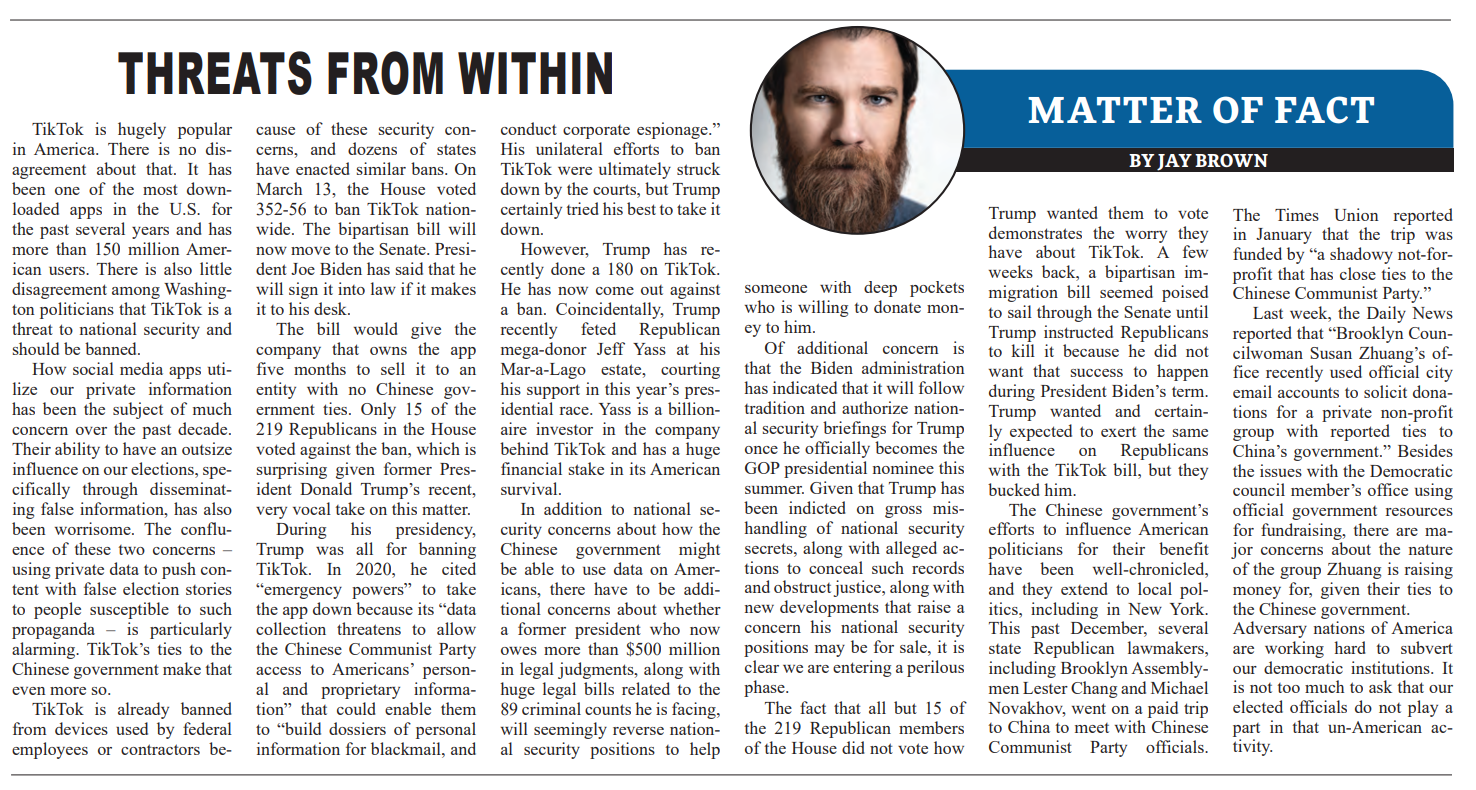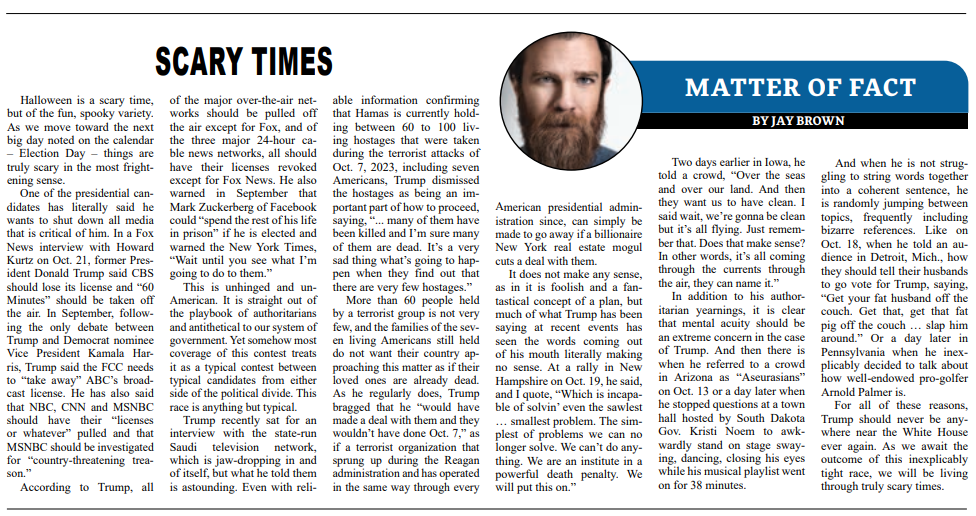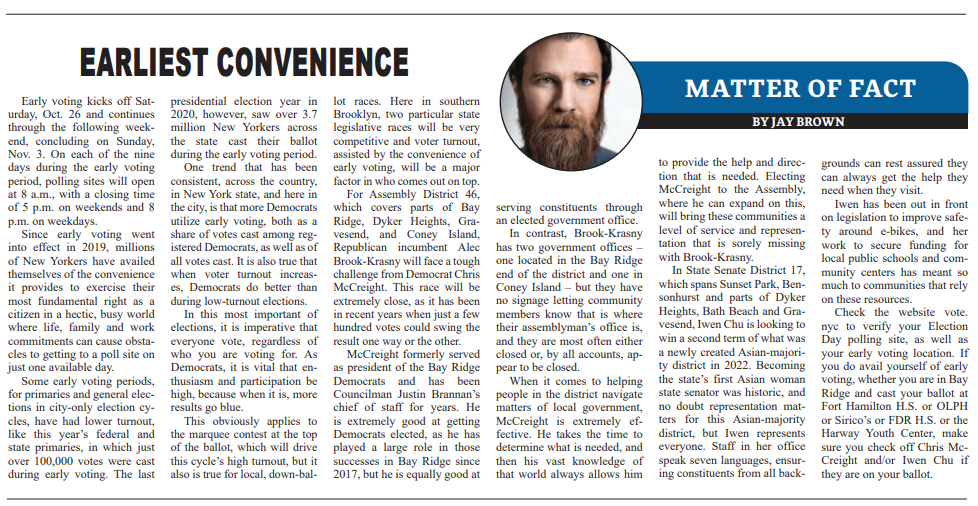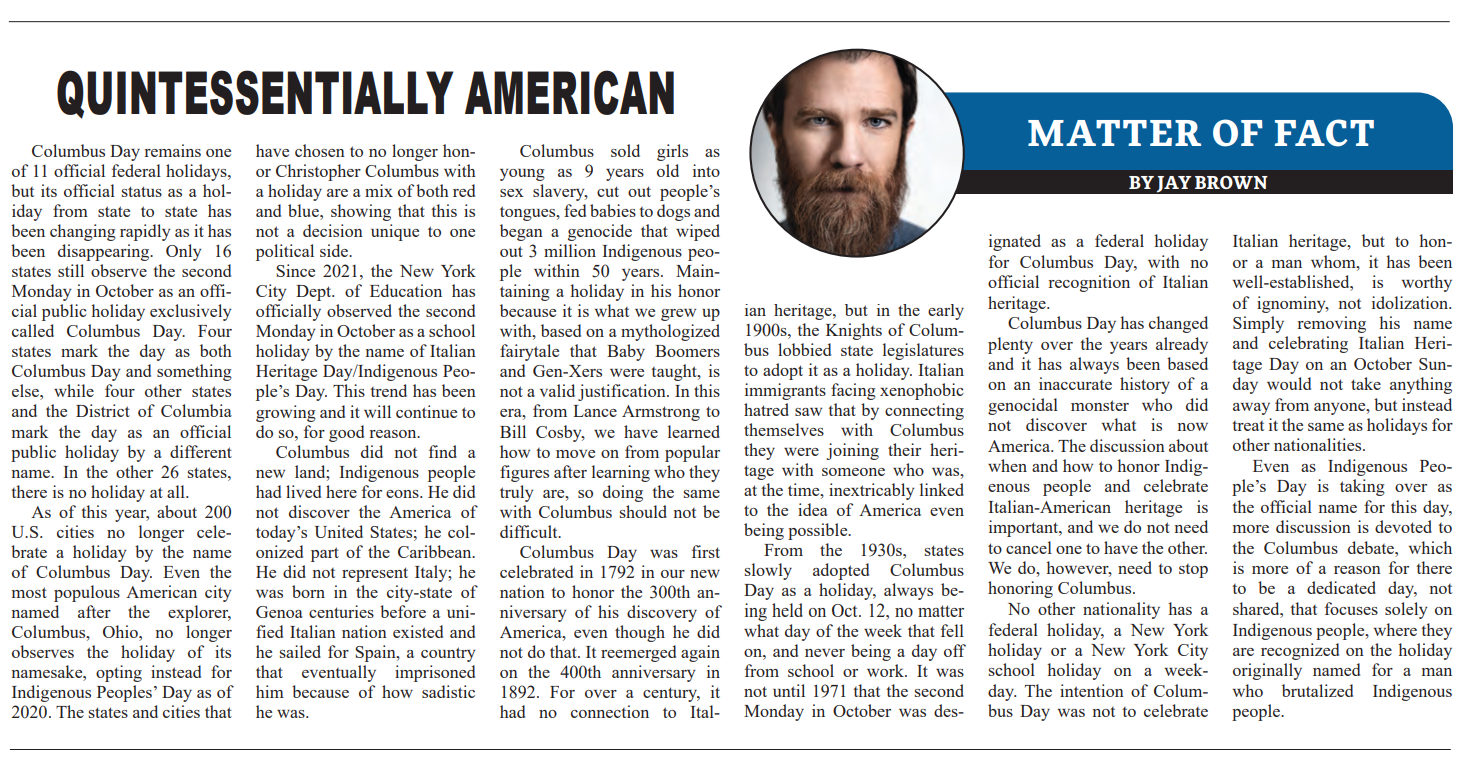This column, from the weekly opinion piece MATTER OF FACT, first appeared on BrooklynReporter.com, the Home Reporter and Spectator March 22, 2024
TikTok is hugely popular in America. There is no disagreement about that. It has been one of the most downloaded apps in the United States for the past several years and has over 150 million American users. There is also little disagreement among Washington politicians that TikTok is a threat to national security and should be banned.
How social media apps utilize our private information has been the subject of much concern over the past decade. Their ability to have an outsize influence on our elections, specifically through disseminating false information, has also been worrisome. The confluence of these two concerns – using private data to push content with false election stories to people susceptible to such propaganda – is particularly alarming. TikTok’s ties to the Chinese government make that even more so.
TikTok is already banned from devices used by federal employees or contractors because of these security concerns, and dozens of states have enacted similar bans. On March 13, the House voted 352-56 to ban TikTok nationwide. The bipartisan bill will now move to the Senate. President Biden has stated that he will sign it into law if it makes it to his desk.
The bill would give the company that owns the app five months to sell it to an entity with no Chinese government ties. Only 15 of the 219 Republicans in the House voted against the ban, which is surprising given Donald Trump’s recent, very vocal take on this matter.
During his presidency, Trump was all for banning TikTok. In 2020, he cited “emergency powers” to take the app down because its “data collection threatens to allow the Chinese Communist Party access to Americans’ personal and proprietary information” that could enable them to “build dossiers of personal information for blackmail, and conduct corporate espionage.” His unilateral efforts to ban TikTok were ultimately struck down by the courts, but Trump certainly tried his best to take it down.
However, Trump has recently done a 180 on TikTok. He has now come out against a ban. Coincidentally, Trump has recently feted Republican megadonor Jeff Yass at his Mar-a-Lago estate, courting his support in this year’s presidential race. Yass is a billionaire investor in the company behind TikTok and has a huge financial stake in its American survival.
In addition to national security concerns about how the Chinese government might be able to use data on Americans, there have to be additional concerns about whether a former president who now owes over $500 million in legal judgments, along with huge legal bills related to the 89 criminal counts he is facing, will seemingly reverse national security positions to help someone with deep pockets who is willing to donate money to him.
Of additional concern is that the Biden administration has indicated that they will follow tradition and authorize national security briefings for Trump once he officially becomes the GOP presidential nominee this summer. Given Trump has been indicted on gross mishandling of national security secrets, along with alleged actions to conceal such records and obstruct justice, along with new developments that raise a concern his national security positions may be for sale, it is clear we are entering a perilous phase.
The fact that all but 15 of the 219 Republican members of the House did not vote how Trump wanted them to vote demonstrates the worry they have about TikTok. A few weeks back, a bipartisan immigration bill seemed poised to sail through the Senate until Trump instructed Republicans to kill it because he did not want that success to happen during President Biden’s term. Trump wanted and certainly expected to exert the same influence on Republicans with the TikTok bill, but they bucked him.
The Chinese government’s efforts to influence American politicians for their benefit have been well-chronicled, and they extend to local politics, including in New York. This past December, several state Republican lawmakers, including Brooklyn Assemblymen Lester Chan and Michael Novakhov went on a paid trip to China to meet with Chinese Communist Party officials. The Times Union reported in January that the trip was funded by “a shadowy not-for-profit that has close ties to the Chinese Communist Party.”
“Brooklyn Councilwoman Susan Zhuang’s office recently used official city email accounts to solicit donations for a private non-profit group with reported ties to China’s government.”
March 13, 2024 Reporting from the New York Daily News
Last week, the Daily News reported that “Brooklyn Councilwoman Susan Zhuang’s office recently used official city email accounts to solicit donations for a private non-profit group with reported ties to China’s government.” Besides the issues with a council member’s office using official government resources for fundraising, there are major concerns about the nature of the group Zhuang is raising money for, given their ties to the Chinese government.
Adversary nations of America are working hard to subvert our democratic institutions. It is not too much to ask that our elected officials do not play a part in that un-American activity.




